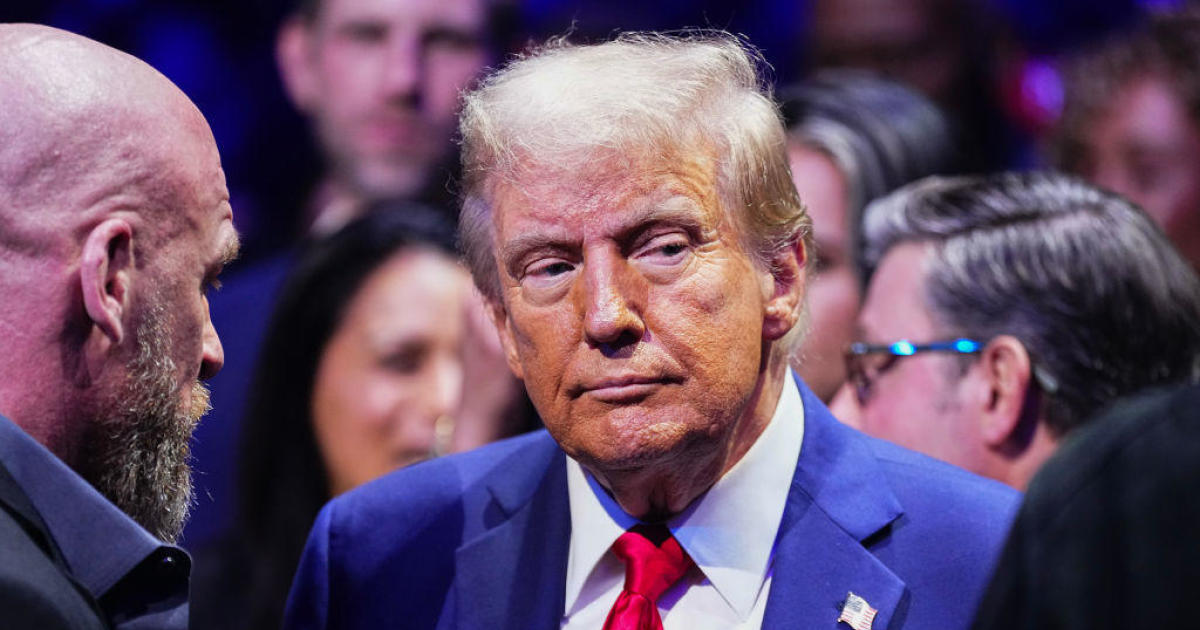
Trump cites Hunter Biden pardon in motion to dismiss New York criminal case

Donald Trump’s lawyers pointed to an unlikely person in demanding a judge dismiss the president-elect’s New York criminal case: Hunter Biden.
Trump’s attorneys said in a court filing made public Tuesday that President Joe Biden’s controversial pardon of his son echoed Trump’s complaints about the prosecution.
“Yesterday, in issuing a 10-year pardon to Hunter Biden that covers any and all crimes whether charged or uncharged, President Biden asserted that his son was ‘selectively, and unfairly, prosecuted,’ and ‘treated differently,'” they wrote, before claiming Trump was treated similarly.
criminal case and nullify a unanimous jury’s conclusion that Trump committed dozens of felonies.
Their argument struck at the quality of the case against Trump, but centers largely on a wholly unique argument in the history of America’s legal system. Trump’s lawyers said his conviction in state court should not stand because he was elected president after his conviction.
Prosecutors for Manhattan District Attorney Alvin Bragg have vowed to oppose the dismissal motion, and have been given a one-week deadline to file their response. They pursued the case amid a torrent of public threats of retribution by Trump’s allies, and anonymous threats of violence by his supporters.
Trump’s lawyers argued in their filing that the Constitution requires dismissal of the case, even though it’s already progressed though trial, because ongoing proceedings threaten to take Trump’s attention from the presidency.
“Wrongly continuing proceedings in this failed lawfare case disrupts President Trump’s transition efforts and his preparations to wield the full Article II executive power authorized by the Constitution pursuant to the overwhelming national mandate granted to him by the American people on November 5, 2024,” wrote his attorneys, Todd Blanche and Emil Bove, each of whom are slated to take on high-level positions at the Justice Department after Trump is inaugurated.
Trump’s sentencing was recently postponed for a third time. After he was convicted in May, Justice Juan Merchan scheduled sentencing for July 11. In the interim, the Supreme Court issued a landmark ruling concluding that former presidents could not be charged for official acts, and evidence related to their official work as president could not be used as evidence against them.
The first sentencing postponement came because Trump’s attorneys wanted to file a motion to dismiss based on that Supreme Court ruling. Merchan has yet to rule on that motion.
They then asked for and were granted a postponement of the second sentencing date, Sept. 18, arguing that it was too close to the election.
After Trump won the presidency on Nov. 5, his attorneys quickly indicated they’d make Monday’s request. In Trump’s filing, his attorneys refer to his election victory as “overwhelming.”
Bragg’s office has floated postponing sentencing and other proceedings until after Trump’s term in office, which ends in 2029.
“Consideration must be given to various non-dismissal options that may address any concerns raised by the pendency of a post-trial criminal proceeding during the presidency, such as deferral of all remaining criminal proceedings until after the end of defendant’s upcoming presidential term,” they wrote in a Nov. 19 letter to Merchan.
The Manhattan case against Trump set a series of unprecedented firsts. He was the first person in American history to be elected president after being convicted of crimes. When the anonymous jury concluded in May he was guilty of 34 counts of falsifying business records, he became the first former president ever convicted of crimes. The case against Trump began when a grand jury in March 2023 made him the first former president ever indicted.
The case revolved around a coverup of a “hush money” payment to an adult film star before his first election to office in 2016. While in office, Trump authorized a scheme to conceal reimbursements to a lawyer who made the payment to the actress just days before Trump’s first election.
Trump entered a not guilty plea in the case and promised minutes after his conviction that he would fight the jury’s decision.
More
More
Source: cbsnews.com